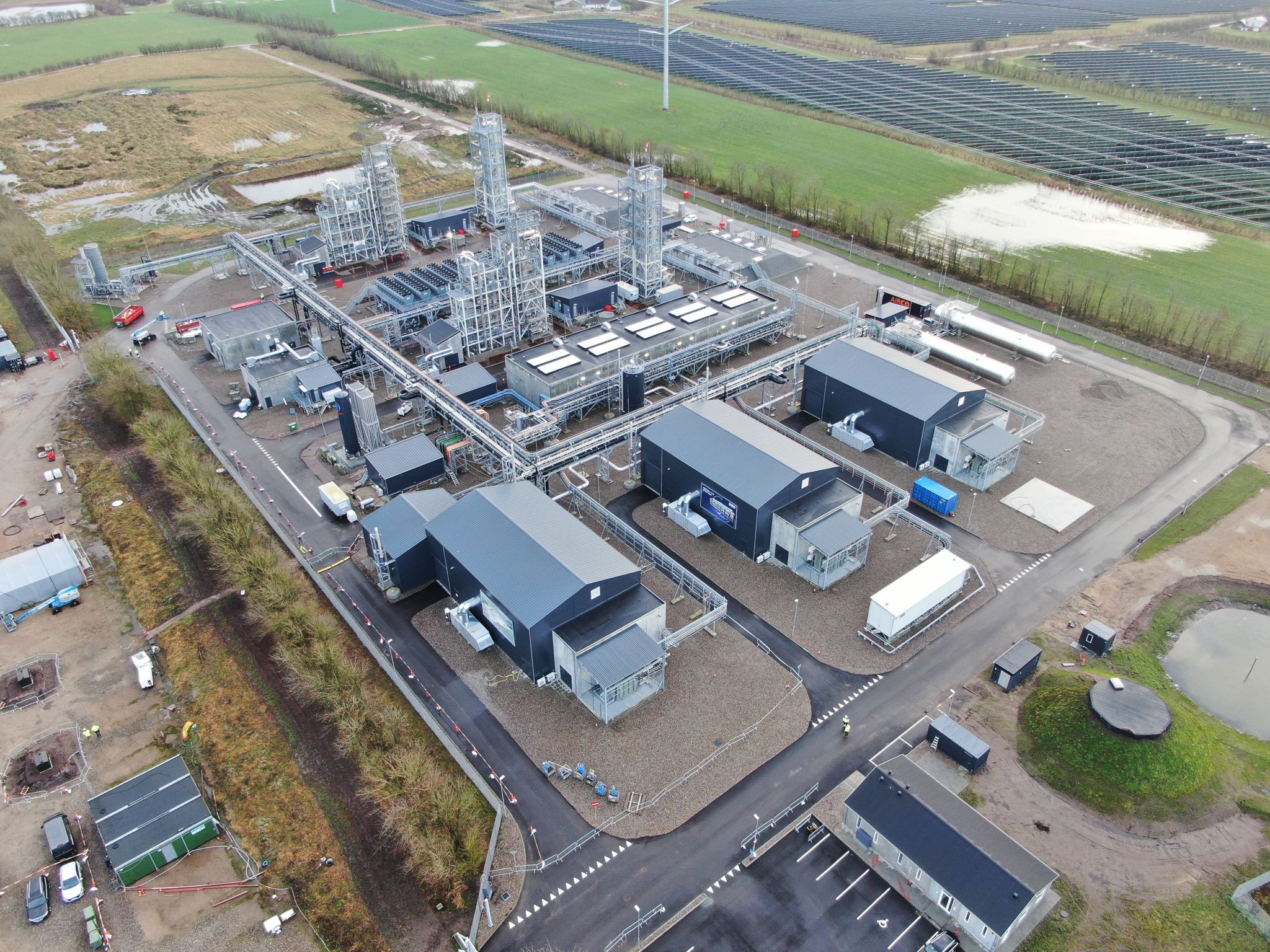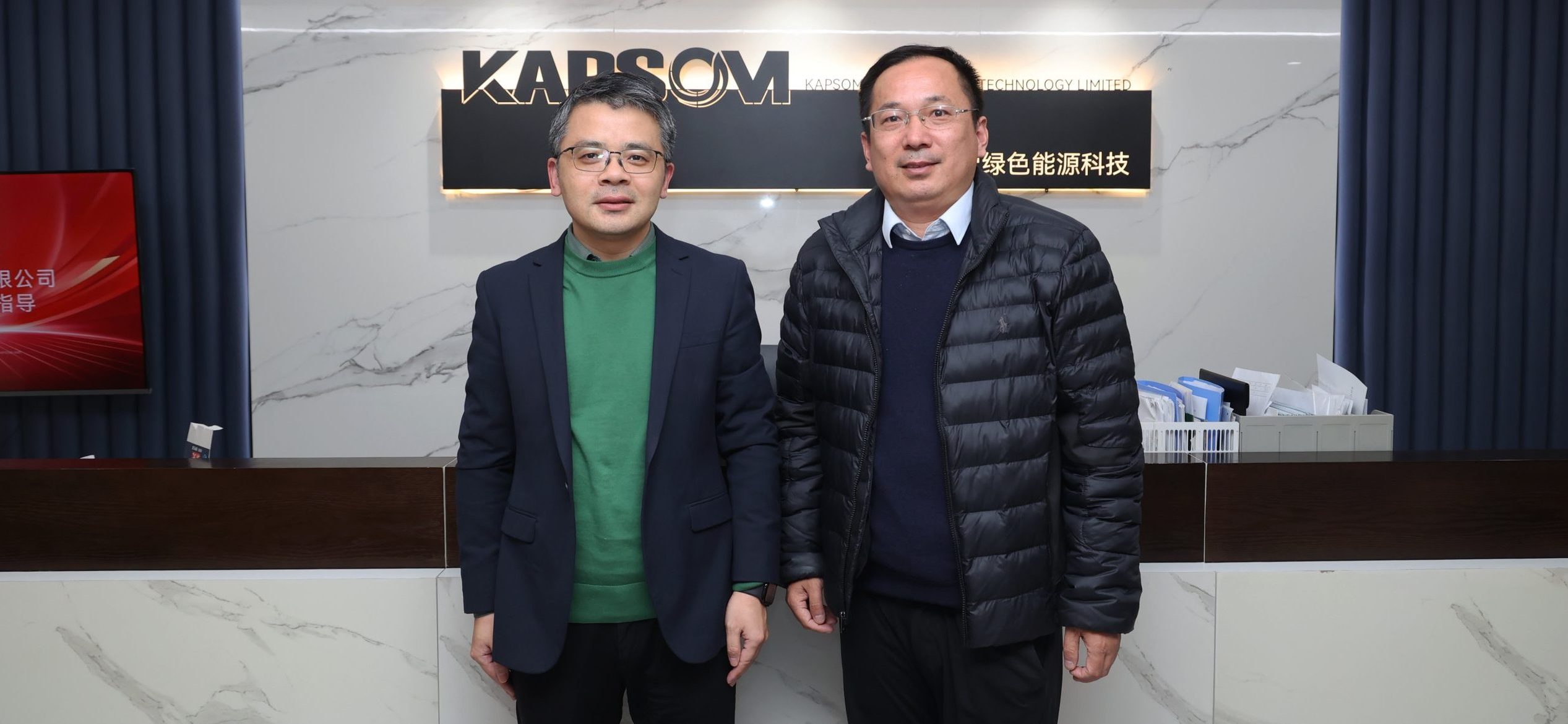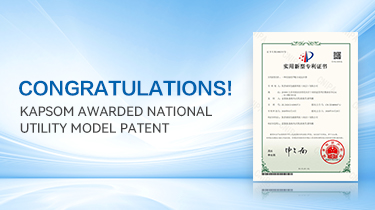In March 2024, clients of the West African Green Ammonia Project visited KAPSOM. Accompanied by our technical engineers, they successfully carried out the Factory Acceptance Testing (FAT) for core units such as nitrogen generation, hydrogen production, and compressors of the project.
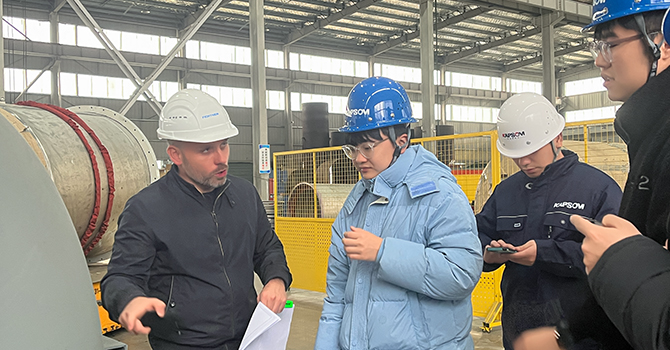
Project Background
The West African Green Ammonia Project represents a pioneering effort in Africa’s power-to-x solutions. Upon completion, it will become Africa’s first fully dynamic carbon-neutral green ammonia production facility. Leveraging clean renewable energy sources, the project ensures environmentally friendly and sustainable energy supply. To address the fluctuations inherent in renewable energy supply, the project employs a highly adaptive power system. This system maintains rapid responsiveness and robust resistance to fluctuations while ensuring stable and efficient operation of the entire production equipment.
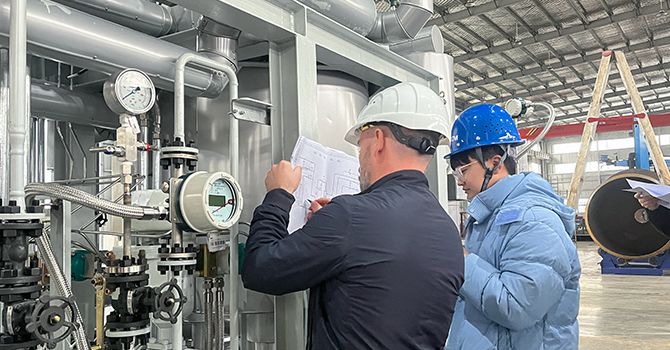
Furthermore, considering the need for continuous operation of the entire system, our technical team has implemented an innovative solution by introducing an auxiliary system to ensure uninterrupted operation of the facility. At its core, this solution focuses on optimizing energy utilization efficiency through meticulous management of energy flow. Not only does it guarantee the sustained production capacity of the facility, but it also significantly reduces energy consumption, thereby markedly enhancing the overall operational efficiency of the facility.
Factory Acceptance Testing (FAT)
Factory Acceptance Testing (FAT) is a comprehensive testing and inspection conducted on a product by the manufacturer prior to its delivery, aimed at ensuring that the product meets specified quality standards and requirements, and satisfies the customer’s demands. During this process, the manufacturer collaborates with the customer to establish testing standards, conducting functional, performance, and reliability tests to ensure that the product operates smoothly and meets expected performance benchmarks. By completing the factory acceptance test, the customer can ensure that the purchased product meets expectations and fulfills their requirements.
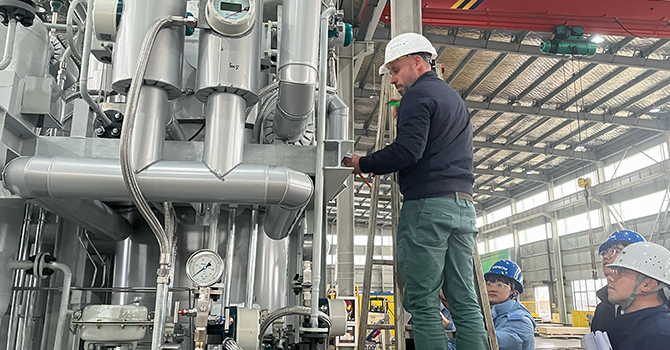
During the FAT acceptance process, the client conducted a detailed inspection of the unit’s exterior, electrical wiring, and internal structure to ensure equipment integrity. Combining the finalized PID drawings confirmed by both parties, a comprehensive and meticulous inspection of components such as pipeline diameters and valves was conducted to ensure strict adherence to design standards during equipment manufacturing. Additionally, acceptance personnel performed performance tests according to technical specifications to validate equipment performance under normal operating conditions.
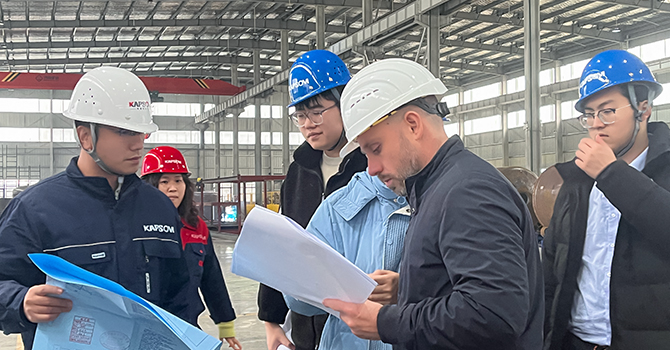
After passing the performance tests, engineers conducted extensive continuous operation tests on the unit to examine its operational stability and heat management. Rigorous safety tests, including emergency shutdown, overload protection, and short-circuit protection, validated the unit’s safety under abnormal conditions. Additionally, engineers calibrated all instruments and controllers of the unit to ensure their accuracy and reliability.
To ensure the smooth progress of the project, a rigorous FAT acceptance testing process is essential. Addressing improvement points raised by the client during the acceptance process, members of the KAPSOM project team actively coordinated resources to ensure the project’s timely delivery and successful commissioning. Through this project’s FAT acceptance, we have gained richer technical experience in micro green ammonia projects and will enter a new stage in project and product quality management.
For more information about KAPSOM and its initiatives, please contact dongling@kapsom.com.

